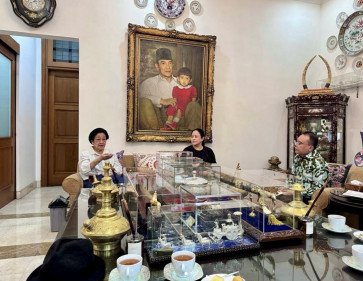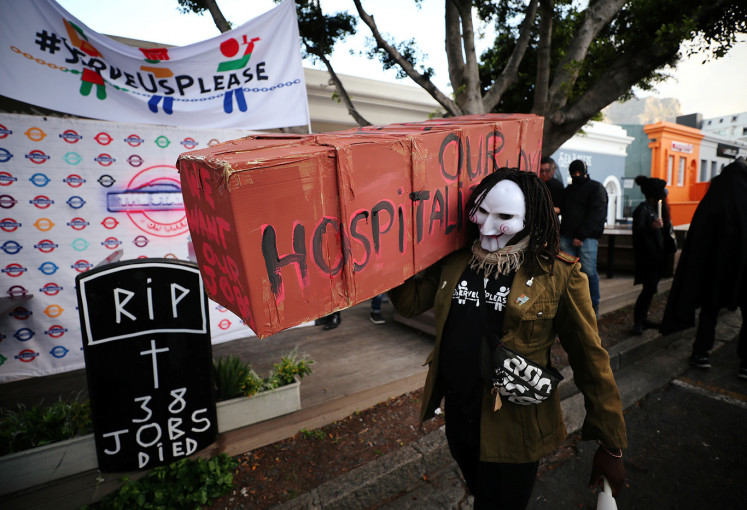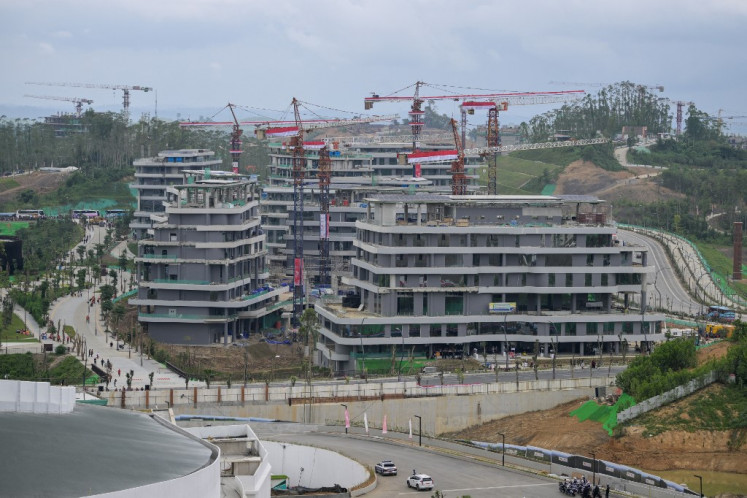Police hunting IS leader Santoso to launch new operation
The government has withdrawn around 1,000 security personnel taking part in Operation Camar Maleo and will launch a new operation, named Tinombala, to continue the hunt for members of the East Indonesia Mujahidin (MIT) militant group
Change text size
Gift Premium Articles
to Anyone

T
he government has withdrawn around 1,000 security personnel taking part in Operation Camar Maleo and will launch a new operation, named Tinombala, to continue the hunt for members of the East Indonesia Mujahidin (MIT) militant group.
The Camar Maleo I to IV operations, which started in January last year, have failed to capture the most-wanted MIT chief, Santoso, alias Abu Wardah, who is believed to also be the leader of the Islamic State (IS) movement in Indonesia.
Central Sulawesi Police chief Brig. Gen. Idham Azis said the security personnel consisted of 700 Indonesian Military (TNI) soldiers from various battalions in Central Sulawesi, South Sulawesi and North Sulawesi, while the remaining 300 came from the National Police's Mobile Brigade (Brimob).
'However, they will return in two weeks as the manhunt against Santoso and his gang will resume under the name Operation Tinombala,' Idham told The Jakarta Post on the weekend.
He said despite the troop withdrawal, around 700 Brimob personnel still remained to restrict the group's movements, especially around human settlements bordering the forest and mountains in Poso Pesisir, North Poso Pesisir and South Poso Pesisir districts.
Santoso and 31 of his followers, affiliated with the MIT, said Idham, were believed to be in hiding in the forests around those districts, including in Napu, North Lore district and in Sausu, Parigi Moutong regency, Central Sulawesi.
According to Idham, throughout the Camar Maleo operations, police had managed to apprehend 24 terror suspects, killing seven and arresting 17 others.
'Two police and one TNI personnel were shot and killed by Santoso's gang during the operations,' said Idham.
Last year, National Police chief Gen. Badrodin Haiti disclosed that Santoso was the IS representative in Indonesia and the MIT was one among several organizations on the police's list of terrorist groups.
Last week, Idham revealed the involvement of two IS members from China's restive Xinjiang province in the MIT, who had organized various violent attacks against locals and law enforcement officers in past years.
He said that based on intelligence reports, the two foreigners, members of China's ethnic Uighur minority, were among the first to join MIT in 2014.
On Dec. 23, last year, the police arrested on two men, identified as Arif Hidyatullah, alias Abu Mushab, and a Chinese Uighur, only identified as Alli, for allegedly planning attacks on Christmas and New Year festivities. Police said the suspects may have links to MIT.
Information gathered by the Post indicates that around 40 members of the TNI Raider Infantry Battalion II have arrived in Poso. They came from the Sriwijaya Military Command in Palembang, South Sumatra. They were seen off on their deployment to Poso by Sriwijaya Military Command chief Maj. Gen. Purwadi Mukson on Jan. 7.
'They are tasked with pursuing MIT members, so those deployed are selected soldiers who have undergone joint training in Batujajar, Bandung regency, West Java,' said Mukson.
A joint military intelligence team has also arrived in Poso.
Poso was a former zone of sectarian conflict between Muslim and Christian communities from 1998 to 2000, when more than 2,000 people were killed or went missing. In 2001, the government sponsored a peace pact and was able to bring the two sides together to sign a peace agreement called the Malino Declaration.









